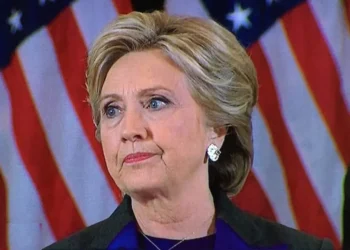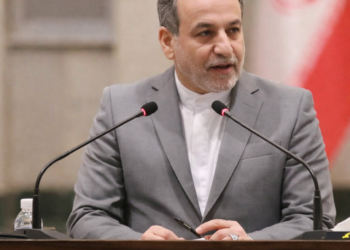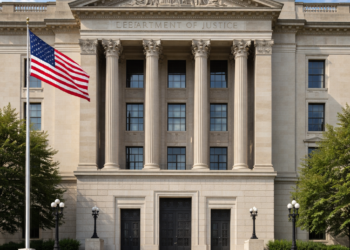The Economic and Financial Crimes Commission, or EFCC, has been directed by Justice Emeka Nwite of the Federal High Court located in Abuja to “maintain the status quo” with respect to its investigation into the purported embezzlement of Ekiti State funds intended for the Ekiti Airport project, among other things, while being overseen by O’seun Odewale, the former director general of the state’s Bureau of Public Procurement.
On September 13, 2024, the judge made the decision in response to a motion ex parte that Odewale and Ariyo Oyinkolawa Adesola had filed against the EFCC in the lawsuit with the file number FHC/ABJ/CS/1340/2024.
Odewale stated in his affidavit in support of the motion ex parte dated September 10, 2024, that EFCC agents who had previously detained him were allegedly pressuring him to admit to committing offences and embezzling Ekiti State Government funds while serving as Director General of the Bureau of Public Procurement, which he refused.
He stated that all of the questions posed to him by the EFCC “were related to the awards of contracts by the Ekiti State Government, with an emphasis on the airport project initiated by the Dr. Kayode Fayemi-led administration, which had reached an advanced stage and was inaugurated,” adding that the operatives also investigated other minor contracts awarded by the Ekiti State Government under his watch.
Chief R.O. Balogun, SAN, Odewale’s attorney, said in his brief that his clients were held by the EFCC longer than what was mandated by the pertinent Federal Republic of Nigeria Constitutional provisions.

He added that although the EFCC is questioning his clients based on its investigation into the finances of the Ekiti State government, an appeal pertaining to the appropriateness of the EFCC’s investigation into contracts given or carried out by the Ekiti State government is currently pending before the Court of Appeal Ado-Ekiti.
In addition, he mentioned that an appeal-pending motion for an injunction and a stay of execution is currently pending.
He claims that the ongoing litigation contests the EFCC’s authority to look into or enquire about projects or contracts that are carried out using funds that have been appropriated by the Ekiti State House of Assembly.
The senior attorney asked the court to prevent the EFCC agents from approaching or bothering his clients in the middle of ongoing legal proceedings, warning that if the ex parte request is denied, they may incur “irreparable damage or grievous hardship.”
Balogun requested that the judge allow the ex parte motion during last week’s resumed session, claiming that despite the ongoing court cases, EFCC agents are still harassing his client regarding the Ekiti State Government projects investigation.
In a brief opinion, Justice Nwite held that the interest of justice would be served by “ordering that the status quo be maintained pending the hearing of the application.”
The judge then ordered that the status quo be maintained and delayed the case until September 26, 2024.
In Essence
Firstly, the fact that the EFCC has been investigating alleged misappropriation of funds related to the Ekiti Airport project is significant, especially given the scope of public procurement and contract awards in Ekiti State under the former administration.
Corruption investigations are crucial for transparency and accountability, but this case also underscores the legal complexities that can arise when federal authorities probe state-level projects.
The ongoing dispute over whether the EFCC has the authority to investigate contracts funded by the state government and approved by the Ekiti State House of Assembly is central to this legal tug-of-war.
The court’s ruling to maintain the status quo, preventing further action by the EFCC pending the outcome of ongoing appeals, is a typical judicial move to ensure fairness while more substantive legal questions are resolved.
Odewale’s claim that he was pressured into admitting guilt, alongside the assertion that the EFCC’s actions may have exceeded constitutional limits, raises concerns about due process and the overreach of investigative bodies.
It appears that the former Ekiti official’s legal team is leveraging these issues to challenge the EFCC’s investigation.

















